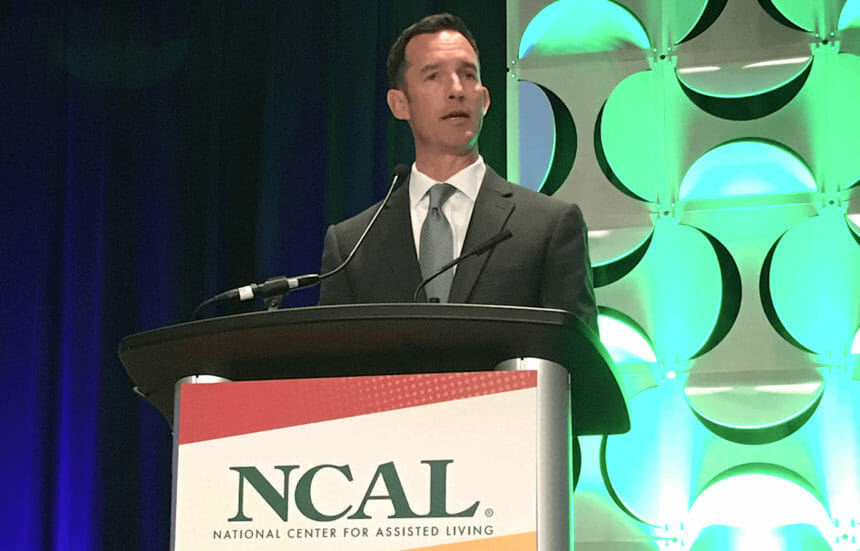
As 2020 was ending, President Trump signed a $900 billion COVID-19 relief bill that adds $3 billion to the Provider Relief Fund. That aid can’t come fast enough for assisted living providers, according to a recent survey.
Fifty-six percent of assisted living operators don’t believe they will be in business in a year, due to increased COVID-related costs, according to the survey. It was conducted in November, before the relief package was approved, and results were released in late December by the American Health Care Association / National Center for Assisted Living.
“Given the gravity of the situation we are facing with this deadly virus and its impact on our vulnerable community, which cannot be overstated, long-term care facilities, including assisted living communities, require essential funding and support from federal and state governments to reduce and prevent the spread of COVID-19,” NCAL Executive Director Scott Tittle said. He called on Congress to direct more funding to senior living and skilled nursing in 2021.
AHCA/NCAL polled 240 assisted living operators and found:
- 28% believe their companies or communities can sustain operations for four to six more months;
- 22% said they can sustain operations for seven to 12 months;
- 6% believe they can sustain operations for one to three months; and
- 44% said they can sustain operations for more than 12 months.
Fifty-five percent of respondents said they are operating at a loss, 30% said they are operating with a profit margin of 0 to 3%, and 16% said their operating margin is more than 3%.
Personal protective equipment accounted for the top COVID-19-related costs for survey participants, regardless of whether their communities had any cases. PPE was cited by 78% of respondents as the top cost, whereas staffing was cited by 65% and cleaning supplies were mentioned by 45%.
To address workforce challenges during the coronavirus pandemic, 88% of participants said they had asked staff members to work overtime or double shifts, 71% said they had provided bonuses (“hero pay”), and 61% said they had hired additional workers.

